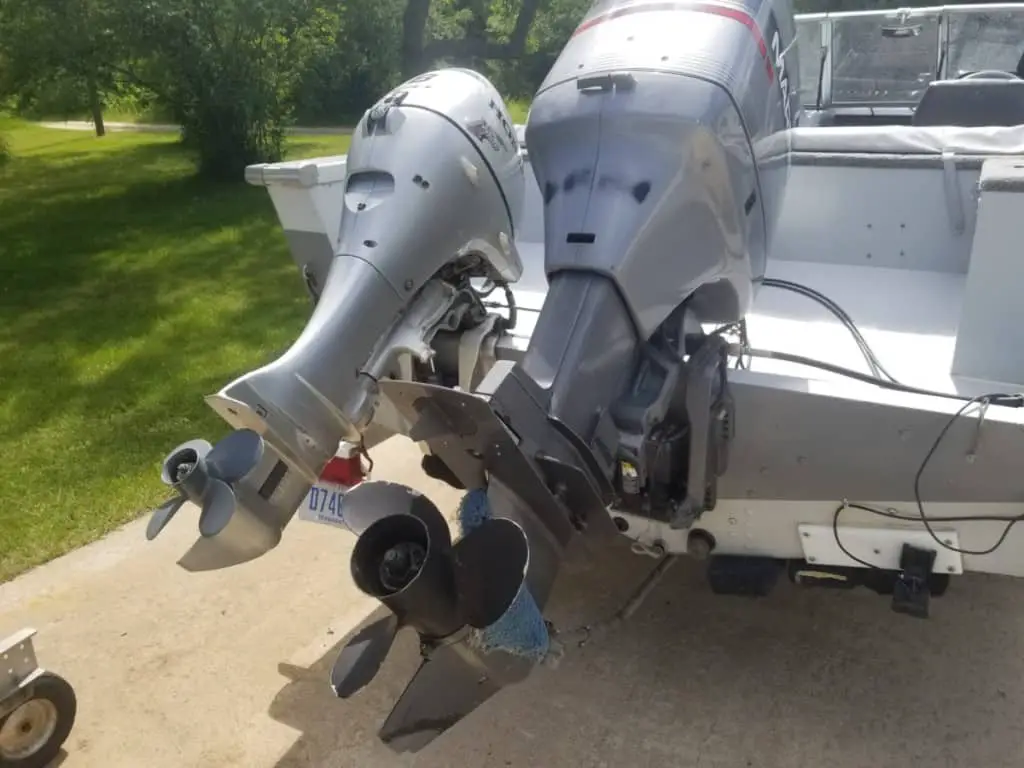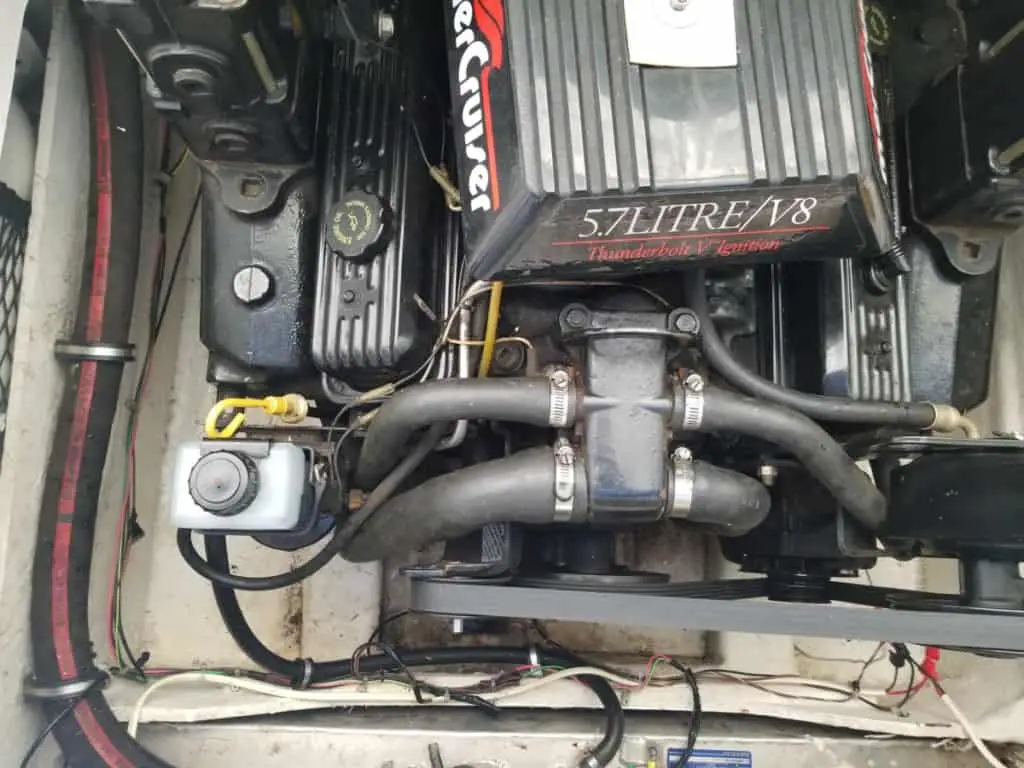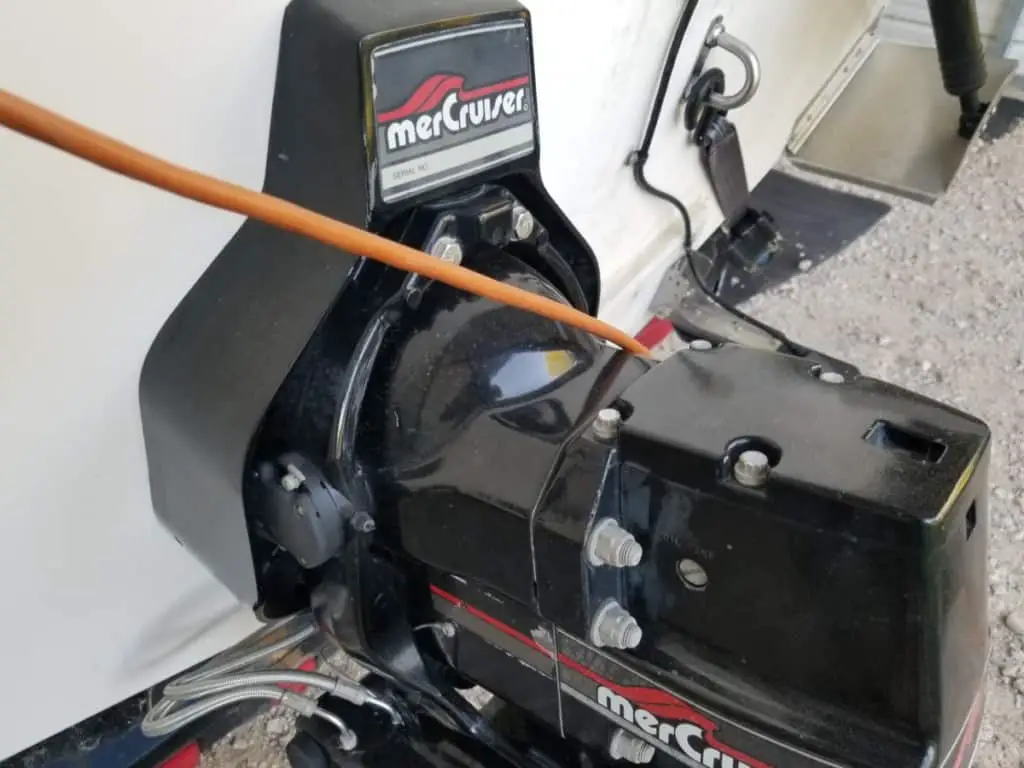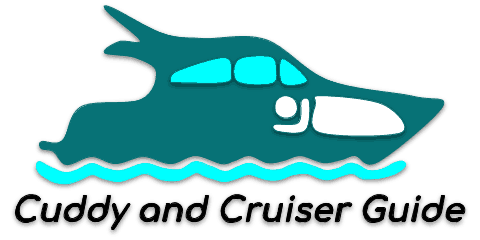Boat engines, just like any other machinery, can be prone to occasional hiccups, and overheating is one of the most common issues faced by boat owners. With the sun shining bright and the water inviting you for a thrilling day on the waves, the last thing you want is an overheating engine that forces you to cut your adventure short.
A myriad of factors can contribute to engine overheating, such as issues with the cooling system, debris in the water intake, or even mechanical problems. Understanding the potential causes and knowing how to address them can save you time, frustration, and money in the long run.
This comprehensive guide will take you through various reasons your boat engine might be overheating, provide effective troubleshooting techniques, and offer helpful preventive measures to keep your aquatic escapades smooth and enjoyable.

Clogged Water Intake
Debris, such as seaweed, plastic, or other foreign objects, can block the water intake, preventing cooling water from reaching the engine.
Solution: Regularly inspect and clean the water intake to ensure optimal water flow. Use a long, flexible brush to remove debris from the intake grate. Make it a habit to check for clogs, especially after boating in areas with high debris concentrations.
Damaged or Worn Impeller
Impellers can wear out, crack, or become damaged, affecting their ability to pump water efficiently.
Solution: Inspect the impeller regularly by removing the pump housing and checking for wear or damage. Replace it if needed to ensure proper water circulation. Lubricate the impeller with a water-based lubricant during installation to prevent dry running at startup.
Faulty Thermostat
A malfunctioning thermostat may not open at the correct temperature, causing the engine to overheat. The engine isn’t cooled immediately upon startup, as it needs a short amount of time to come up to proper operating and combustion temperatures. When the proper temp is reached, the thermostat should allow cold water in to cool the engine so that it doesn’t overheat.
Solution: Test the thermostat by placing it in boiling water and observing if it opens correctly. Replace it if necessary to maintain accurate temperature control. Keep a spare thermostat on board to facilitate a quick replacement.
Restricted or Damaged Heat Exchanger
A heat exchanger can become clogged with mineral deposits or corrosion, reducing its efficiency.
Solution: Periodically inspect the heat exchanger for signs of corrosion or buildup. Flush it with a descaling solution or replace it if necessary. To prevent future issues, consider installing a freshwater cooling system.
Collapsed or Leaking Hoses
Hoses can collapse, crack, or develop leaks, impeding the flow of cooling water.
Solution: Regularly inspect all hoses for signs of wear or damage. Replace any hoses that show signs of deterioration or have become brittle. Ensure that hose clamps are tight and secure to prevent leaks.

Incorrect Engine Timing
Improper engine timing can cause the engine to run hotter than normal.
Solution: Check your engine timing using a timing light, and adjust it according to the manufacturer’s specifications. Consult your engine manual for the correct timing settings.
Insufficient Coolant Levels
Low coolant levels can lead to inadequate cooling and engine overheating.
Solution: Regularly check the coolant level in the engine’s coolant reservoir, and top off as necessary. Use a coolant mix that matches the manufacturer’s specifications. Regularly flush and replace the coolant to maintain its effectiveness.
Faulty Water Pump
A damaged or malfunctioning water pump can result in reduced water flow and overheating.
Solution: Inspect the water pump for leaks, corrosion, or damage. If necessary, replace the pump to ensure proper cooling performance. Make sure to use a quality replacement pump that meets or exceeds the manufacturer’s specifications.
Inefficient or Dirty Engine Oil
Old, dirty, or low-quality engine oil can contribute to engine overheating.
Solution: Regularly change your engine oil and use the recommended oil type and viscosity for your engine. Check the oil level frequently and top off as needed to maintain optimal lubrication and cooling performance.
Overloaded or Improperly Trimmed Boat
An overloaded boat or improper trim can strain the engine, leading to overheating.
Solution: Adhere to the boat’s maximum capacity guidelines and distribute weight evenly. Adjust the trim properly to achieve optimal engine performance and prevent unnecessary strain.
Malfunctioning Temperature Gauge or Sensor
A faulty temperature gauge or sensor can give inaccurate readings, leading to overheating.
Solution: Test the temperature gauge and sensor for accuracy. Replace faulty components to ensure you receive accurate temperature readings and can address overheating issues promptly.

Clogged or Damaged Exhaust System
A clogged or damaged exhaust system can restrict exhaust gas flow, causing the engine to overheat.
Solution: Inspect the exhaust system for obstructions or damage. Clear any blockages and repair or replace damaged components to ensure proper exhaust flow.
Poor Ventilation in the Engine Compartment
Insufficient ventilation can cause heat to build up in the engine compartment, leading to overheating.
Solution: Regularly inspect and clean engine compartment vents. Ensure that the engine room blower is functioning correctly to maintain adequate airflow. If necessary, consider upgrading the ventilation system for improved cooling performance.
Worn or Damaged Belts
Belts that drive the water pump or other engine components can wear out or become damaged, affecting cooling efficiency.
Solution: Inspect all belts for signs of wear, cracks, or damage. Replace any belts that show signs of deterioration to ensure they can drive the engine components effectively.
External Factors
Warm Weather or High Water Temperature: Warm weather or high water temperature can contribute to engine overheating. Keep an eye on the temperature gauge, and if necessary, take steps to cool down the engine, such as running at a slower speed or shutting off the engine for a short period.
Overloading or Improper Operation
Overloading the Boat: Overloading your boat can put additional strain on the engine, leading to overheating. Always follow the manufacturer’s guidelines for weight limits and proper loading procedures.
Excessive Idling or Running at High Speeds for Extended Periods: Running your boat’s engine at high speeds for extended periods or excessive idling can cause overheating. To prevent this, give your engine a break and allow it to cool down periodically.
Final Takeaways
By addressing these potential causes of engine overheating and implementing the suggested solutions, you can maintain your boat’s engine in optimal condition and prevent costly repairs or engine damage.
Regular maintenance and inspection of your boat’s engine and cooling system will help you identify issues early on, allowing you to enjoy worry-free boating.
